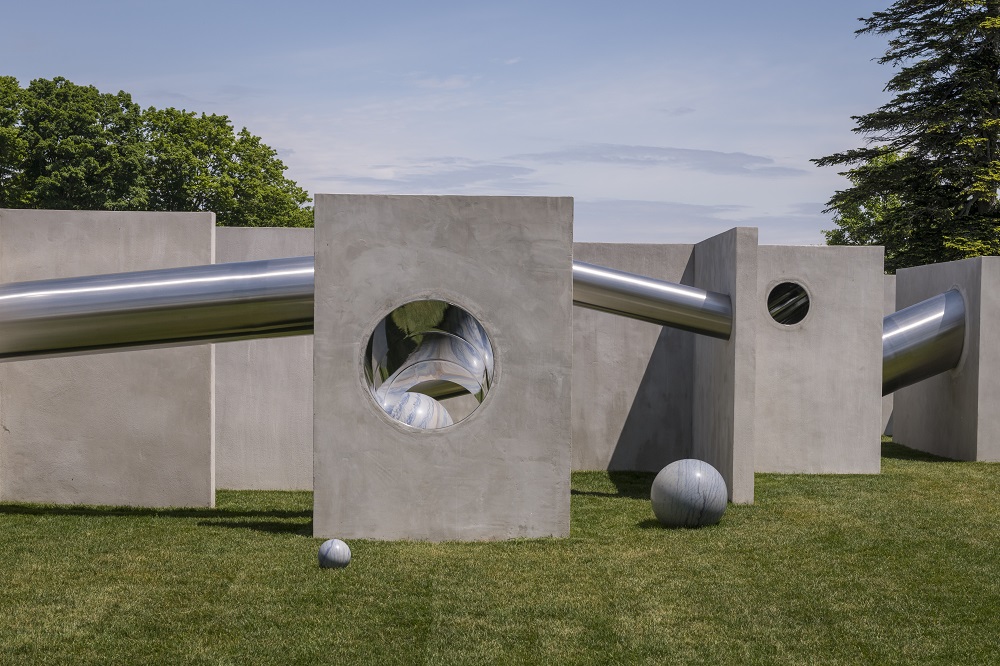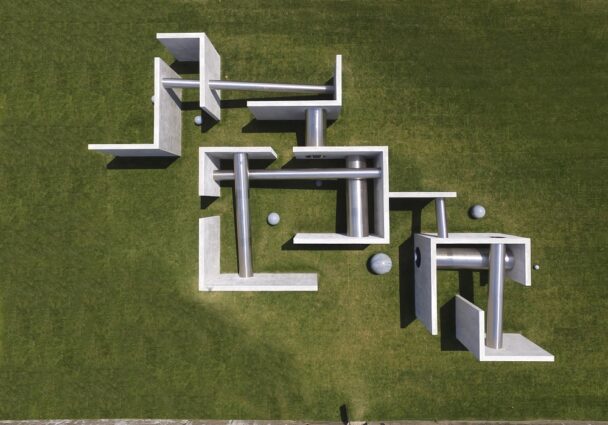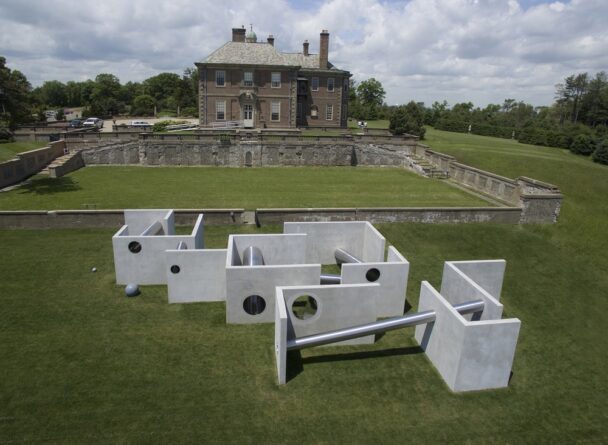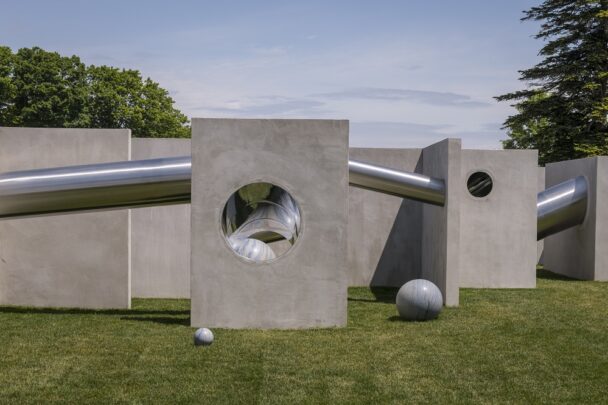

Berlin-based contemporary artist Alicja Kwade (b.1979, Poland) has long been engaged with value systems, philosophical questions about the essence of reality, and with attempting to examine, if not resolve, issues of inherently subjective concepts such as space and time. In her sculptures, as well as installations, photographs, and films, Kwade occupies herself with the structural properties of everyday objects and questioning the veracity of matter, revealing possibilities for alternate realities, while examining social agreements and supposed truths.
A rapidly rising international star in the art world, Kwade presented her first U.S. solo exhibition at 303 Gallery in New York in the spring of 2016 and has since opened several other international exhibitions, ReReason at Yuz Museum in Shanghai, and Linienland at Haus Konstruktiv in Zurich (open through May 6, 2018.) TunnelTeller, her new work for The Trustees, is Kwade’s first large-scale public artwork commission in the U.S. The installation opened to the public on Saturday, May 19, 2018, and will be on view through April 1, 2020 at Castle Hill on the Crane Estate in Ipswich.
Working with independent curator Pedro Alonzo, the exclusive curator for the Trustees Art & the Landscape initiative since the program’s inception, Kwade’s new work is a site-specific piece that embodies the spirit of the place and interprets the natural and cultural surroundings with a nontraditional form of expression. Resting upon the outlines of the former hedge maze once located to the east of the Great House at Castle Hill, and overlooking Cape Ann and Crane Beach, the structure will draw upon the property’s gilded era majesty, the Crane family history, and the natural beauty of the surrounding landscape.
One of The Trustees’ most iconic properties, the Crane Estate is comprised of 2,100 protected acres consisting of Castle Hill – a National Historic Landmark that includes the Crane mansion or “Great House” – the Inn at Castle Hill, Crane Beach, and the Crane Wildlife Refuge. The property was formerly owned by Chicago industrialist Richard T. Crane, Jr., who purchased the property in 1910 because he was captivated by the beauty of the landscape. Over many years, Crane worked with a dream team eight leading architects, landscape architects, and artists to shape his summer family retreat. In 1928, he crowned the estate with a grand mansion designed by renowned Chicago architect David Adler. The family generously bequeathed the majestic estate to The Trustees in 1940 to preserve for public use and enjoyment. Today, the Crane Estate welcomes over 350,000 visitors annually from near and far and offers year-round educational and cultural programs and activities.
While the Crane family had a long history of working with designers and artists at Castle Hill, this is The Trustees’ first presentation of a commissioned contemporary work in this historic and majestic landscape of rolling hills and coastal views.
Alonzo describes TunnelTeller as an immersive structure designed to challenge the viewer’s notions of space and perception. At a moment of tremendous diversity in the arts where virtually any material and combination of unique mediums are being used as a means of artistic expression, he describes Alicja Kwade as an artist who stands out for her ability to use raw materials and everyday objects to create bold works that imbue meaning, creativity, and surprising functionality.
TunnelTeller will be free with admission to Castle Hill and open to the public when the property is open, from sunrise to sunset. Join the Art & The Landscape conversation with The Trustees on Facebook, Twitter, and Instagram: @thetrustees #thetrustees #artXlandscape. For more information on Alicja Kwade’s current and past exhibitions, visit the 303 Gallery website.
Photos by Peter Vanderwarker Photography.


